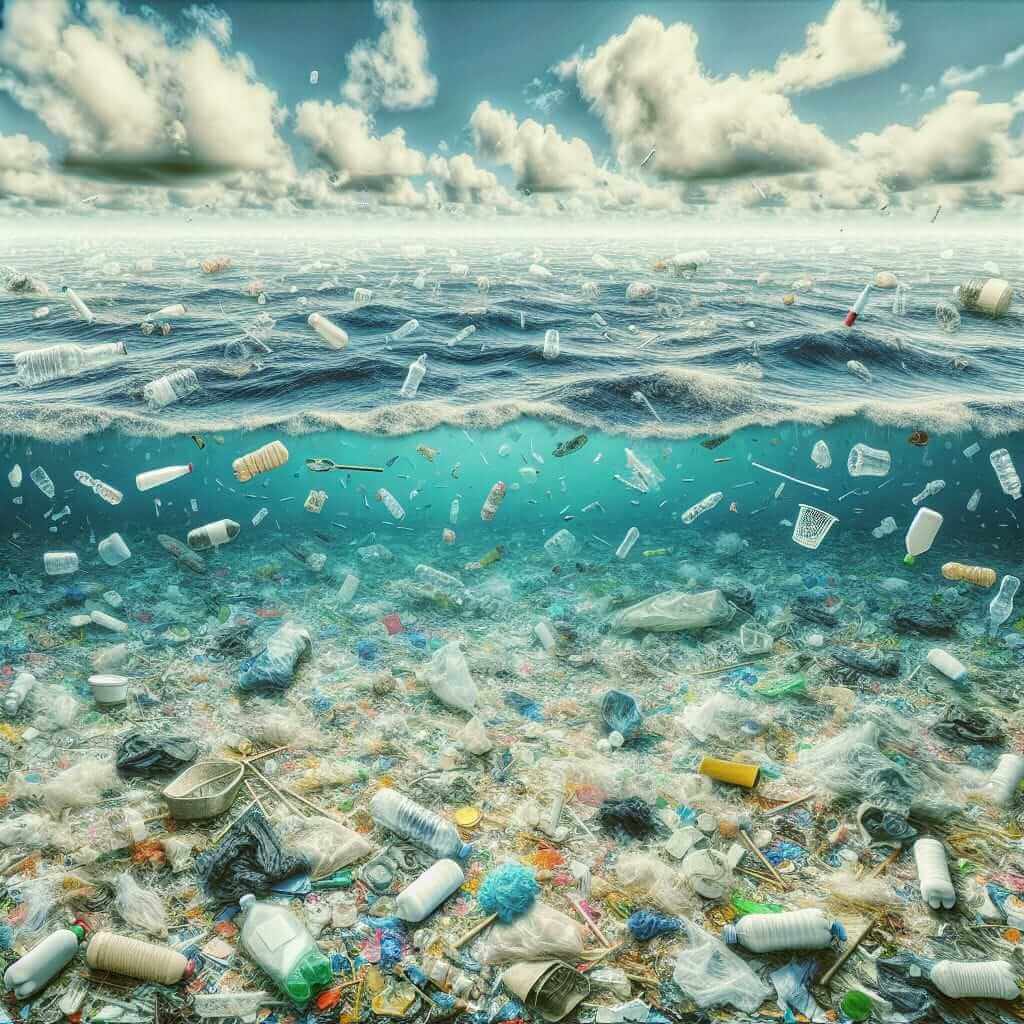Plastic waste is a significant environmental issue that has gained increased attention in recent years. This topic often appears in IELTS Writing Task 2, as it is both relevant and critical. In this article, we will analyze and discuss various aspects of the effects of plastic waste on human health, providing a sample essay for IELTS Writing Task 2 and tips to help you prepare for this topic.
Common IELTS Writing Task 2 Questions About Plastic Waste
- Some people believe that plastic waste has adverse effects on human health. To what extent do you agree or disagree?
- Discuss both the positive and negative impacts of plastic waste management on human health.
- What measures can be taken to mitigate the effects of plastic waste on human health?
Choosing a Sample Essay Prompt
Let’s choose the first prompt for our sample essay: Some people believe that plastic waste has adverse effects on human health. To what extent do you agree or disagree?
Analyzing the Prompt
In this task, you need to state your opinion on whether plastic waste adversely affects human health. You should present arguments supporting your perspective and include relevant examples.
Sample Essay
Plastic waste has become a ubiquitous part of modern life, prevalent in everything from packaging to consumer goods. While the convenience offered by plastics is undeniable, the increasing volume of plastic waste has raised significant concerns regarding its impact on human health. I firmly believe that plastic waste poses several adverse effects on human health for the following reasons.
To begin with, plastic waste contributes to the contamination of food and water sources. Microplastics, which are tiny plastic particles, can infiltrate our food chain. When plastics break down in the environment, they release toxic chemicals that can leach into soil and water. These chemicals, such as Bisphenol A (BPA) and phthalates, are known endocrine disruptors, meaning they can interfere with hormone function, potentially leading to health issues such as reproductive problems and developmental disorders.
Moreover, the incineration of plastic waste releases harmful pollutants into the air. Burning plastics can emit dioxins, furans, and other toxic substances, which pose serious respiratory risks and have been linked to cancer. People living near incineration sites or landfills are particularly vulnerable to these air-borne pollutants, as they are more likely to inhale these hazardous chemicals.

In addition, plastic waste indirectly affects human health by impacting ecosystems and biodiversity. Many animals mistakenly ingest plastic debris, which can lead to internal injuries, blockages, or even death. When marine life consumes plastic, these toxic materials can make their way up the food chain and ultimately into human diets. This bioaccumulation of harmful substances poses risks to food safety and human health.
While some argue that technological advancements in recycling and plastic waste management can mitigate these issues, the reality is that a significant portion of plastic waste is not effectively recycled. Many developing countries lack the infrastructure to manage plastic waste properly, exacerbating the problem and exposing larger populations to health risks.
In conclusion, the adverse effects of plastic waste on human health are considerable and multifaceted, ranging from chemical exposure to pollution and ecological harm. To address this issue, stringent measures such as reducing plastic production, promoting sustainable alternatives, and enhancing waste management systems are essential. By acknowledging the health risks posed by plastic waste, we can work towards a healthier future for all.
Word count: 365
Key Takeaways for Writing About This Topic
- Use Specific Vocabulary: Employ words related to chemicals (endocrine disruptors, bisphenol A, phthalates), health conditions (reproductive problems, developmental disorders), and waste management terms (incineration, recycling).
- Present Balanced Arguments: While focusing on the negative impacts, acknowledge counterarguments and provide a balanced view by mentioning advances in waste management.
- Incorporate Examples: Integrate real-life examples to illustrate the effects of plastic waste, such as the prevalence of microplastics in the food chain.
Vocabulary to Remember
- Microplastics (n) /ˈmaɪkrəʊˌplæstɪks/: tiny plastic particles resulting from the breakdown of larger plastic waste.
- Endocrine Disruptors (n) /ˈɛndəʊˌkrɪn dɪsˈrʌptəz/: chemicals that interfere with hormonal systems.
- Bisphenol A (BPA) (n) /bɪsˈfiːnɒl eɪ/: a chemical used in plastics that can leach into food and beverages.
- Phthalates (n) /ˈθæleɪts/: a group of chemicals used to make plastics more flexible and harder to break.
- Incineration (n) /ɪnˌsɪnəˈreɪʃən/: the process of burning waste materials at high temperatures.
- Bioaccumulation (n) /ˈbaɪəʊəkjuˌmjuleɪʃən/: the accumulation of substances, such as pesticides, in an organism.
- Toxic Substances (n) /ˈtɒksɪk ˈsʌbstənsɪz/: chemicals that are harmful to human health and the environment.
- Respiratory Risks (n) /ˈrɛspərətəri rɪsks/: dangers associated with breathing in harmful substances.
- Food Safety (n) /fuːd ˈseɪfti/: the practices and conditions necessary to ensure that food is safe to eat.
- Sustainable Alternatives (n) /səˈsteɪnəbl ɔːlˈtɜːnətɪvz/: environmentally friendly substitutes for conventional plastics.
Conclusion
The effects of plastic waste on human health are complex and far-reaching. This essay has provided a comprehensive exploration of the topic, outlining the key points and considerations necessary for a high-quality response in the IELTS Writing Task 2. To master this type of question, practice writing balanced arguments, incorporating specific vocabulary, and using real-world examples. Additional practice topics might include: “The role of government regulations in managing plastic waste,” or “Comparing the health impacts of plastic waste in developed versus developing countries.”